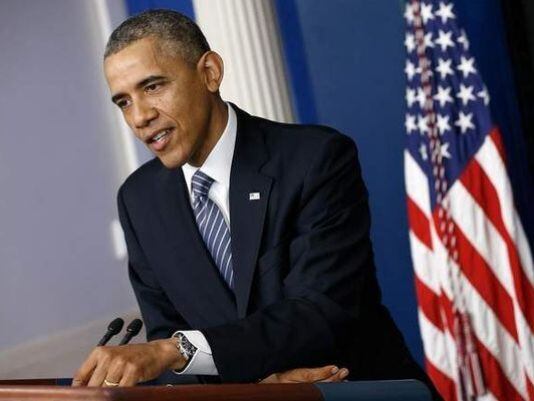As congress continues to debate government funding levels for fiscal 2016 it has not finalized one critical issue – will federal employees be getting a pay raise?
In February President Barack Obama proposed a 1.3 percent pay raise for federal employees, slightly higher than the 1 percent feds received in 2014 and 2015. So far Congress has not finalized any pay raise for federal employees.
However, President Obama does not need Congress for his proposed pay raise to become law. If Congress does not act to set a pay raise for federal employees, President Obama's proposed raise will go into effect. Congress can still pass a bill freezing pay or enacting a higher pay raise.
The last time federal employees received a pay raise above 3 percent was in 2009, when feds got a 3.9 percent pay raise. That was followed by several years of pay freezes
In the Department of Defense Appropriations Act passed by the Senate, lawmakers included an affirmation of the 1.3 percent pay raise for military service members and civilian employees.
Rep. Gerry Connolly, D-Va., has been pushing legislation that would give federal employees a 3.8 percent pay raise. But so far it has not received a vote in the House despite receiving 73 co-sponsors.
"I strongly believe that the 114th Congress should consider, debate, and vote on my legislation to provide a 3.8 percent across-the-board pay raise for the hardworking men and women of our Nation's dedicated civil service," Connolly said. "The House Republican leadership should have nothing to fear in providing Members an opportunity to fairly debate my bill's merits and vote up or down."
But in the absence of a vote on his legislation he would be supportive of a 1.3 percent pay raise – especially considering that the alternative might be a new pay freeze, Connolly said.
"Fortunately, the majority has thus far refrained from seeking a harmful pay freeze in the pending Fiscal Year 2016 funding bill. I hope that this marks a turning point in how Congress treats the Federal Government's most valuable asset – it's people," Connolly said.
Rep. Don Beyer, D-Va., said federal employees deserve more than the 1.3 percent proposed pay raise, and he supports the 3.8 percent pay raise bill.
Meanwhile federal employee unions are pushing for the largest raise possible.
William Dougan, President of the National Federation of Federal Employees, said given recent history, federal employees cannot have any expectations about pay adjustments.
"Federal employees are long overdue for a real pay adjustment, one that actually reflects the cost of living and addresses the ballooning pay disparity between equivalent work in the private sector," Dougan.
But NFFE, along with other federal unions, are pushing for a higher federal pay raise than the 1.3 percent proposed by President Obama. Dougan said NFFE was pushing the FAIR Act as an alternative.
"Nothing is set in stone right now, which is why it is imperative for federal employees to call their representatives and urge them to support the FAIR Act," Dougan said.
Colleen Kelly, president of the National Treasury employees Union, said the 1.3 percent pay raise was "not enough" and that the union was working to bolster support for a larger raise.
"NTEU is working to ensure Congress gives federal employees meaningful pay raises that will allow them to keep up with rising costs and narrow the widening gap between federal and private-sector pay," Kelley said. "Far too many federal workers are struggling to maintain a middle-class lifestyle."
Jessica Klement, the legislative director at the National Active and Retired Federal Employees Association, said federal employees should expect Congress to remain silent on a potential pay raise and letting President Obama's proposed 1.3 percent stand.
"I cannot foresee a scenario in which it would be more, although that's not to say it wont happen," Klement said.





